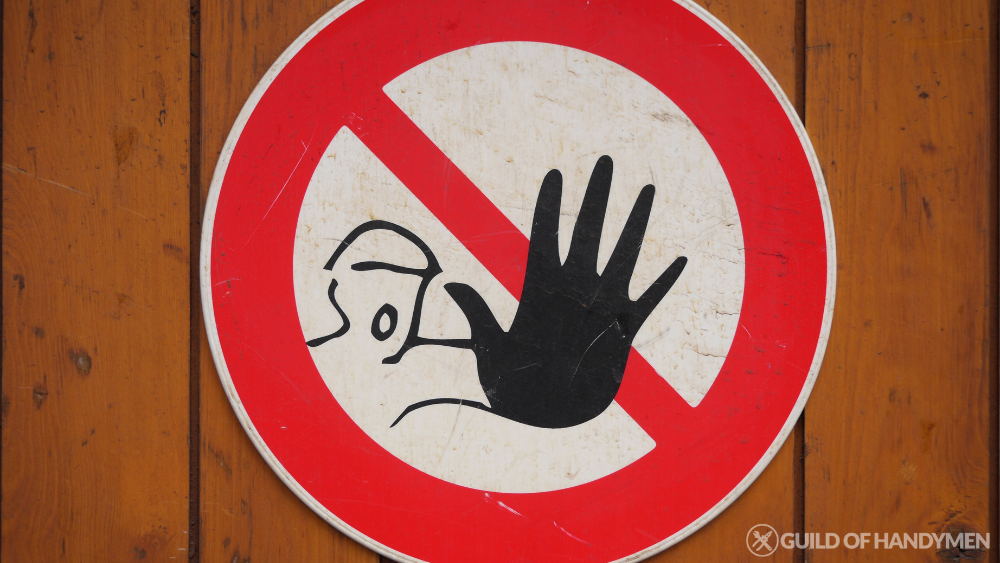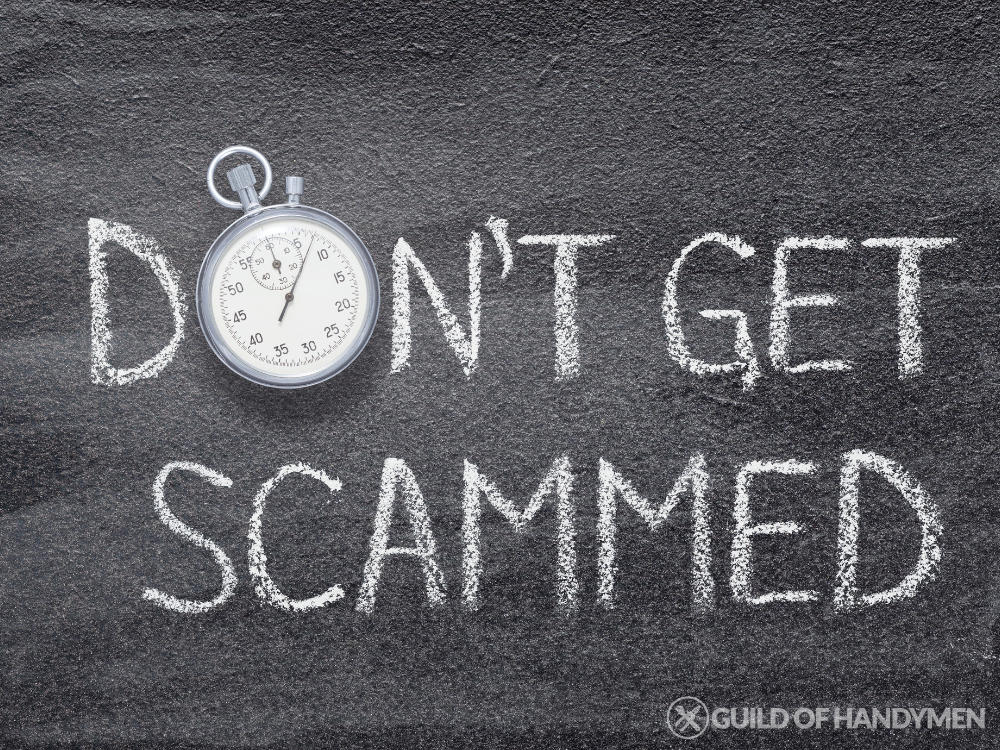Hiring a handyman should make your life easier, not harder. However, the reality is that there are some rogue traders out there looking to make quick money through scams and shoddy work. Spotting a scam before it costs you time and money can save you a lot of frustration. In this guide, we’ll cover common handyman scams, what red flags to watch for, and how you can protect yourself when hiring someone to work on your home.
This blog is part of our series on how to hire a reliable handyman – sharing everything you need to know to get the best handyman for your needs.
Common Handyman Scams to Be Aware Of
While most handymen are honest professionals, a few bad apples use deceptive tactics to exploit homeowners. Here’s a rundown of common scams:
1. Upfront Payment Demands
One of the biggest red flags is a demand for full payment before any work begins. Some scammers insist on large upfront fees, only to disappear without completing—or even starting—the job. A professional handyman may ask for a small deposit (especially if materials need to be ordered) but should never require full payment in advance.
How to Protect Yourself:
- Agree to a reasonable payment schedule based on work completion.
- Be wary of contractors who push you to pay cash upfront. Payments made this way are hard to trace if things go wrong.
2. No Written Contract
Another classic scam involves skipping the paperwork. The handyman promises to get the job done verbally, but with no written contract, you have no recourse if they deliver poor-quality work or abandon the project entirely.
How to Protect Yourself:
- Always get a detailed written agreement, even for smaller jobs. The contract should outline the scope of work, timeline, and cost.
- Make sure any changes to the job are also documented in writing.
3. Lack of Credentials or Insurance
Unlicensed or uninsured handymen may offer low rates, but the risk is high. If something goes wrong—like an accident or damage to your property—you could be left holding the bag. Some scammers may even try to convince you that credentials or insurance aren’t necessary, but don’t fall for it.
How to Protect Yourself:
- Ask to see proof of insurance and verify any claims of accreditation or membership with trade organisations.
- Check if the handyman has the proper licenses for any specialised work, like plumbing or electrical.
4. Unverifiable References
Scammers might provide a list of references that are either false or from friends who are in on the deception. If you can’t speak directly with past clients or if the references sound suspiciously vague, you may be dealing with a dodgy operator.
How to Protect Yourself:
- Follow up on references by calling them. Ask specific questions about the quality and reliability of the handyman.
- Look for consistent reviews online. Websites like Trustpilot or local forums can provide a better sense of the handyman’s reputation.
5. Unexpected Price Increases
An unscrupulous handyman might quote a low initial price to secure the job, only to “discover” unexpected issues that significantly raise the cost once work begins. Sometimes, these hidden fees are exaggerated or fabricated entirely.
How to Protect Yourself:
- Get multiple quotes for a job to understand what the fair price should be.
- Make sure your contract outlines how additional costs will be handled and ask for a written estimate before agreeing to any extra work.
Red Flags to Watch For

Aside from the specific scams mentioned, certain warning signs can indicate trouble. Keep your guard up if a handyman:
- Has a vague or rushed explanation of the job.
- Only communicates via mobile phone and refuses to provide a fixed address.
- Claims to have leftover materials from a previous job and offers a “discounted rate.”
- Pressures you into making a quick decision, saying things like, “This offer is only good for today.”
How to Hire a Reputable Handyman
Now that you know what to avoid, here are some tips for hiring a reliable professional:
- Do Your Research: Check reviews and ratings on trusted platforms. The more positive feedback you see, the better.
- Ask for Recommendations: Word-of-mouth referrals from friends, family, or neighbours are often the safest bets.
- Check for Accreditation: Reputable handymen may belong to professional bodies like the Federation of Master Builders or be Checkatrade members.
- Request a Written Quote: Always get a written estimate that details labour, materials, and any other fees.
- Stay Involved: Check the progress of the job and don’t be afraid to ask questions if something feels off.
Key Takeaways
- Never pay in full upfront and be cautious with cash-only transactions.
- Always get a written contract to safeguard against incomplete or poor-quality work.
- Verify credentials and insurance to avoid liability issues.
- Check references thoroughly and trust your instincts if something feels off.
- Avoid pressure tactics or contractors offering deals that seem too good to be true.
By keeping these tips in mind, you can steer clear of handyman scams and ensure your home improvement projects go smoothly. After all, peace of mind is priceless!

